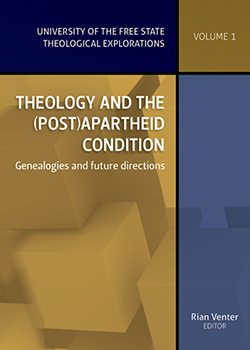Latest News Archive
Please select Category, Year, and then Month to display items
03 March 2021
|
Story Giselle Baillie
|
Photo Supplied
_web.jpg?sfvrsn=987e6620_1) Residence members who led the project, included:
Bohlokwa Rantja, the Residence Prime, and Transformation Committee members Nsuku Mutemela, Ofentse Motlakeng, Phindile Tjale, Madinku Mabala, Mmapopi Motshoso, Karabo Shuping, and Tagane Sekete.
Residence members who led the project, included:
Bohlokwa Rantja, the Residence Prime, and Transformation Committee members Nsuku Mutemela, Ofentse Motlakeng, Phindile Tjale, Madinku Mabala, Mmapopi Motshoso, Karabo Shuping, and Tagane Sekete.
The University of the Free State (UFS) Council approved and adopted Lehakwe House as the new name for the
NJ van der Merwe residence on the Bloemfontein Campus. The approval on 26 November 2020 followed a lengthy process of deliberation, consultation, and public engagement that has taken place since November 2019 and is aligned with the UFS Policy on Naming and Renaming. The name-change process was initiated by the Prime and Transformation Committee of the residence, guided by the
Unit for Institutional Change and Social Justice and supported by a multi-stakeholder committee representative of the residence, the Housing and Residence Affairs Office, the Department of Student Affairs, the Student Representative Council, and alumni.
Lehakwe – a precious gem
Following a lengthy evaluation process of the names submitted through a public voting and recommendation platform in July 2020, ‘Lehakwe’ – a Sesotho word referring to a ‘precious gem’ – emerged as the front runner. As many current and past members of the residence attest, this womxn’s residence has come to occupy a significant space within the hearts and minds of UFS students and the UFS community, given that its spirit has always been closely aligned with the constitutional values of dignity, equality, and freedom and with the human values of ubuntu. In this vein, the new name of ‘Lehakwe’ presents a consolidation of constitutional and university values into the day-to-day thinking, learning, living, and legacy spaces of students, as well as everyone who interacts and engages with the UFS.
UFS research project aims to stimulate reflection on theological studies
2017-06-20

The first book in the ‘UFS Theological
Exploration’ academic series, called Theology
and the Post(Apartheid) Condition, has just
been released.
Photo: Supplied
The first study book with the title Theology and the Post(Apartheid) Condition, which is part of a new academic series by the Faculty of Theology and Religion at the University of the Free State, is now available. Volume 1, compiled by Professor Rian Venter as editor, is the first book in the ‘UFS Theological Exploration’ academic series, which the faculty plans to release.
Transformation
Professor Venter says the transformation of processes and practices in communicating and creating knowledge has become an urgent task for public universities in a democratic South Africa. Much reflection has already gone into the methods and scope of transformation in higher education.
Although the faculty has done work on the implications of this for theology, there is one area of investigation that has not received much attention. It concerns the role of theological disciplines such as Old and New Testament, Missiology and Systematic Theology and Practical Theology, and specifically the relationship between academic disciplines and societal growth. The book focuses on these challenges and contains the intellectual undertakings of the contributors who are all lecturers, research fellows and post-graduate students linked to the faculty.
The questions
The key questions addressed are: what are the contours of the (post)apartheid condition and what are the implications for responsible discipline practices in theology. Professor Venter says the chapters in the book are logically arranged and moves from wider to more specific concerns. The first three chapters suggest broad perspectives on the challenges for theology in higher education, chart the changes, and make some suggestions for the future.
A dynamic field of study
The book states that theology has already experienced profound and radical changes over the past decade, which is known to us. All the chapters demonstrate these fundamental shifts, which have taken place in all theological sub-disciplines. Professor Venter says the contributions in the book illustrate that theology is a dynamic field of study, and is pursued with enthusiasm and commitment. Not all disciplines in theology are investigated for the book. However, the studies reflect the interests of the theologians in the Faculty of Theology at the UFS. Professor Venter hopes that the volume might stimulate further reflection of a similar nature by other theologians.
New insights
Through the ‘UFS Theological Exploration’ research series, the faculty hopes to stimulate new insights and new developments in academic progress and overall human growth. Series editor Professor Francois Tolmie says it is a fact that strong university research is necessary to achieve academic progress and advance human prospering. He says the faculty's research series will make a valuable contribution to these causes. Professor Tolmie says the ‘UFS Theological Explorations’ contains research of the highest academic standard which has been peer-reviewed to make significant educational contributions to core theological issues in South Africa and overseas.